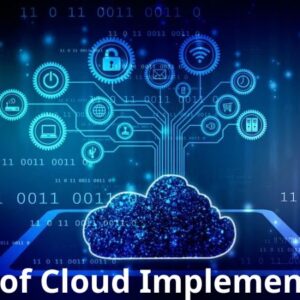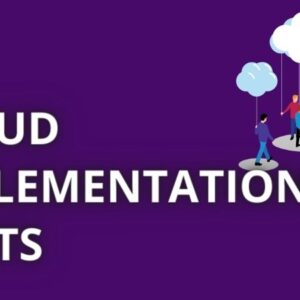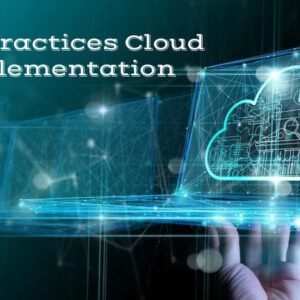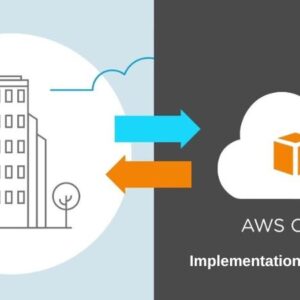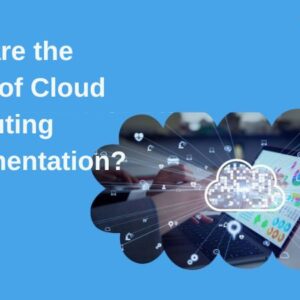Rounding Up the Top 10 Cloud POS Providers
Are you considering an update of your existing point-of-sale (POS) system?
You have plenty of traditional solutions to choose from. That said, more and more of your peers are choosing to invest in cloud POS systems.
What advantages do cloud-based systems offer? What should you look for in a provider, and are there any downsides to a cloud POS system? Most importantly, what options do you have for providers?
What is a Cloud POS System?
A cloud POS system might also be referred to as a web-based or SaaS (Software as a Service) POS system. The system may include user-interface hardware, such as tablets, smartphones, or other internet-connected devices with which your customers and staff interact. Meanwhile, the software component in the backend enables the management of data, customer profiles, insights, and other relevant elements via any web browser.
The system stores all information in the cloud, meaning a remote server. By doing so, it allows access to this data from anywhere, provided there’s an internet connection.
The setup is typically straightforward and requires minimal training. Essentially, after your business is onboarded with the POS provider, you only need to install the relevant app, leveraging the convenience of SaaS (Software as a Service) technology.
5 Benefits of a Cloud POS System
A cloud point-of-sale system completely reinvents your checkout processes from start to finish.
A traditional POS works by connecting your payment terminal to a POS server. This allows you to quickly capture and catalog payment details, transaction information, and other data to store for later. The system relies on an extensive network of wires, routers, and other devices to connect the pieces.
That can lead to a few problems. For example, it requires a considerable amount of hardware. Also, the more complex a system becomes, the more vulnerable it can be to malfunctions, errors, or criminal attacks.
In contrast, a cloud POS system offers several benefits over the hardwired method:
While these systems provide significant benefits, there can be potential drawbacks. For example, an internet connection is needed to function optimally. There may also be ongoing subscription costs to consider. On that note, let’s dig a little deeper into the cost factor.
How Much Does a Cloud POS Cost?
The cost of a POS system, which can be substantial with traditional setups, consists of two primary components: software and hardware. Cloud POS systems, however, typically offer a subscription model, resulting in lower upfront costs and predictable monthly expenses.
Software costs can range from $15 to $100 monthly per register, contingent upon chosen features, business size, and the specific POS provider. Hardware costs come into play if your setup goes beyond a basic device, with terminal prices averaging $120 to $1,000.
Add-ons like cash drawers and barcode scanners can be priced between $50 to $300. That said, bundles including software and hardware are often available, providing an easy start for newcomers.
Keep in mind, though: each POS provider differs slightly in operation, necessitating careful research before commitment. And while costs are a significant factor, it’s equally important to understand your business needs to identify the most suitable and economical cloud POS provider.
Who Needs a Cloud POS?
Cloud POS software can benefit a wide range of verticals due to its scalability, accessibility, and cost-effectiveness. Here are some of the industries that can derive substantial benefits from a cloud POS system:
These are some of the industries that can benefit the most. But, a cloud POS system can be a valuable tool for almost any business that handles transactions and values data-driven decision-making.
Questions to Ask When Looking for a Cloud POS Service
Cloud POS software can offer a lot of advantages compared to a traditional system. What should you look for when determining the best service level and provider for your needs, though?
The first thing to consider is, of course, functionality. Does the software work smoothly? Have you found anyone talking about experiences with lost data, inability to connect to the cloud or other glitches? You want to investigate these reports and see if you notice any recurring complaints.
In addition, here are a few other specific questions to ask when deciding which service provider to partner with:
Top 10 Cloud POS Service Providers for 2024
You should now have a good idea of what to look for in a Cloud POS system. With all that in mind, let’s run down the list of the highest-rated providers in the business. We’ll consider the strengths and weaknesses of each, and offer some general insights.
To compile our list, we looked at the highest-rated Cloud POS providers and developed a comprehensive rundown of the best options per vertical. Ratings and reviews were averaged based on sources including G2, Forbes, Capterra, and Enlyft. The ‘pros and cons’ we mention are paraphrased directly from real, firsthand customer reviews.
Things a Cloud POS System Can’t Do
There are a lot of misconceptions out there about cloud POS systems.
For example, fears of the cloud as unsecured or a “digital no man’s land” have no basis. In fact, a cloud POS is generally more secure than traditional POS systems. And, as discussed above, worries about internet connectivity are unfounded too. Even if you lose connectivity, a good system will cache and store transaction data, then upload it to the cloud once you reestablish connectivity.
Despite this, cloud POS systems do have some legitimate drawbacks.
Some experts have raised concerns about the ownership of data stored within cloud systems. Cloud service providers are aware of the legal gray area and have taken steps to address it. However, data ownership issues can still create uncertainty, especially as consumer data rights are fleshed out by legislation like the General Data Protection Regulation (GDPR) and the California Consumer Privacy Act (CCPA).
Also, while a cloud system is more secure than a traditional POS, that doesn’t mean it’s impervious to fraud. Bots, hackers, and other cyberthreats can still breach a cloud system to steal transaction and cardholder data. A cloud POS system also has no effect against post-transaction attacks, like friendly fraud.
Benefits of a Cloud POS Outweigh Drawbacks
Ultimately, the benefits of a cloud POS system should outweigh the downsides. Most businesses will see improved processes, lower costs, and greater ease in processing and handling data by converting to a cloud POS system.
Regardless of how you manage information, the key to fraud prevention is doing everything necessary to mitigate risk. For example, friendly fraud can still be a threat, no matter which POS system or other anti-fraud tools you may have.
Click below to learn how opting for professional chargeback management might be one of your best decisions.

